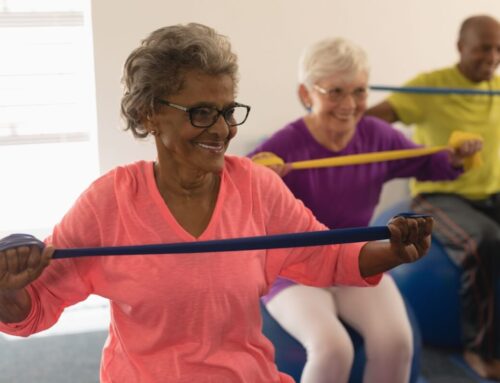May is National Stroke Awareness Month, a good reminder for seniors and aging adults in assisted living communities to know about the strokes and their causes and effects.
National Stroke Awareness Day was officially started in 1989 on a proclamation by President George H.W. Bush. Over the years before and after the proclamation, the Centers for Disease Control, the American Heart Association, World Stroke Campaign and other organizations have educated people, researched strokes and treated people who have strokes around the world.
Despite these efforts, strokes are still a leading cause of death in the U.S. Every 40 seconds, someone in the U.S. has a stroke, according to the CDC. Every 3.5 minutes, someone dies from a stroke.
One of the keys to surviving a stroke for a senior or the elderly is knowing the signs and symptoms so you can act fast if you or someone you know is having a stroke. Patients who get to an emergency room within three hours of their first symptoms typically have less disability after three months than patients who had delayed care.
The FAST Way to Diagnose Stroke
An easy way to tell if someone is having a stroke is “FAST.” It’s a way of knowing the signs and symptoms of a stroke and reacting quickly.
- Face—Ask the person to smile. You can quickly see if one side of their face droops.
- Arm—Ask the person to raise both arms. If one drifts lower than the other, it may be a sign of a stroke.
- Speech—Slurred speech is another stroke symptom. Ask the person to repeat a single sentence.
- Time—Call 911 quickly. Time is often the difference between life and death and even partial or full recovery.
It’s important for you to take the steps to reduce your risks of a stroke. Stroke is the fifth-leading cause of death in the U.S. and the long-term effects of strokes are debilitating. During a stroke, parts of the brain become damaged and can die within minutes.
Five Steps to Preventing Stroke
Here are five ways you can become involved in preventing a stroke and guarding against the threat of one in your life:
—Control blood pressure and cholesterol by taking your prescribed medications.
—Manage other medical conditions that may lead to a stroke, including obesity and diabetes.
—Avoid smoking and avoid secondhand smoke. Both of these increase your risk of a stroke.
—Eat a healthy diet that is low in salt and sugar. Make sure to eat lots of fresh fruits and vegetables.
—Increase your physical activity. This also helps you maintain a healthy weight that’s another safeguard against having a stroke.
Get To Know Regency at Augusta
At Regency at Augusta we know that choosing the right community for yourself or a loved one is a big responsibility. Touring communities and asking questions can be taxing.
Let us make the experience enjoyable for you! We invite you to schedule a visit and come out to experience the Regency at Augusta difference for yourself.


 Schedule a Tour Today!
Schedule a Tour Today!







